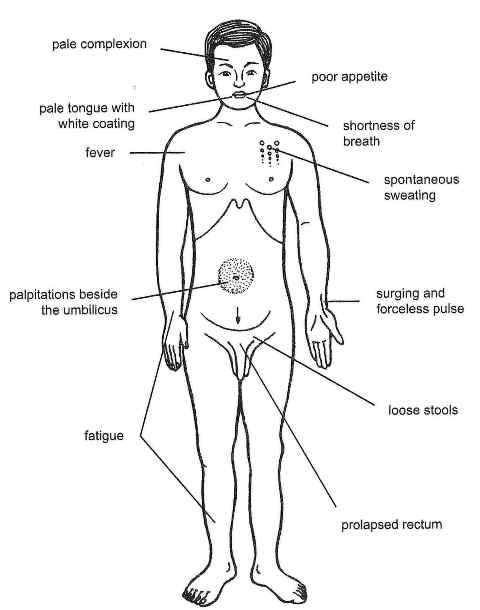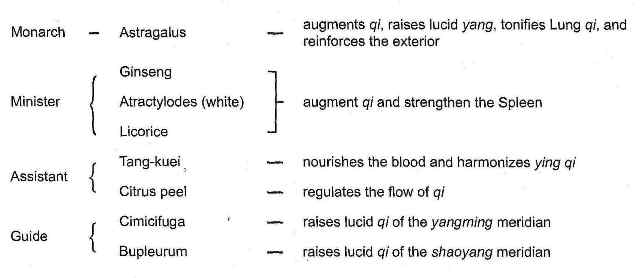Commonly Used Chinese Herb Formulas with Illustrations - Ginseng and Astragalus Combination (Bu Zhong Yi Qi Tang)
1311 補中益氣湯 (Bu Zhong Yi Qi Tang)
Ginseng and Astragalus Combination
Tonify the Middle and Augment the Oi Decoction
【Formulation】
Chinese Name
Pharmaceutical Name
Pin Yin Name
English Name
黃耆
Radix Astragal
Huang Qi
炙甘草
Radix Glycyrrhizae praeparata cum melle
Zhi Gan Cao
人參
Radix Ginseng
Ren Shen
生薑
Rhizoma Zingiberis recens
Sheng Jiang
陳皮
Pericarpium Citri reticulatae
Chen Pi
白朮
Rhizoma Atractylodis macrocephalae
Bai Zhu
當歸
Radix Angelicae sinensis
Dang Gui
大棗
Fructus Jujubae
Da Zao
升麻
Rhizoma Cimicifugae
Sheng Ma
柴胡
Radix Bupleuri
Chai Hu
【Classic Literature Reference】
Pi Wei Lun (A Treatise on the Spleen and Stomach, 1249).
Compiler: Li, Gao.
【Indications】
Traditional:
Modern: General weakness or weakness following a severe illness, hysteroptosis, prolapsed rectum, gastroptosis, fever, chronic fatigue syndrome, myasthenia gravis, cancer, chronic gastritis, chronic hepatitis, chronic nephritis, leukorrhea, chronic bronchitis, angioneurotic headache, chronic rhinitis, leukopenia, and coronary heart disease.

Pattern of Spleen and Stomach Qi Deficiency/Sinking of Qi
【Herbs and Actions】

Join our member to get full-text article! Join Free!
【Pharmacological Studies】for members only
【Clinical Applications】for members only
【Discriminations】for members only
【Precautions】for members only
【References】for members only